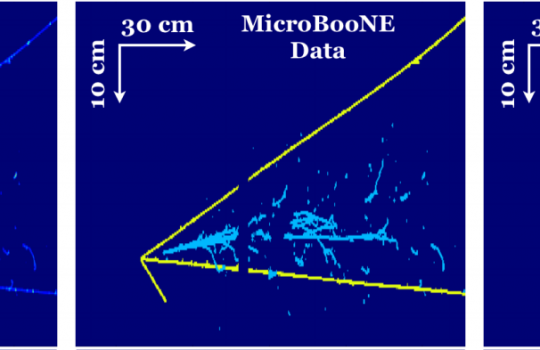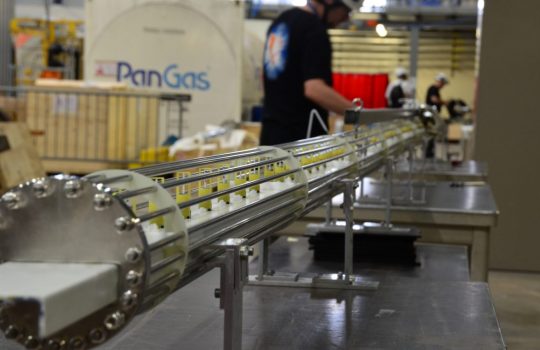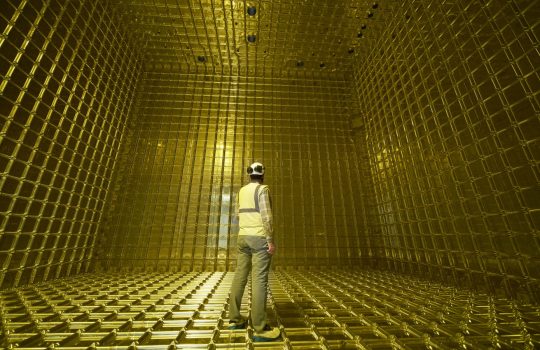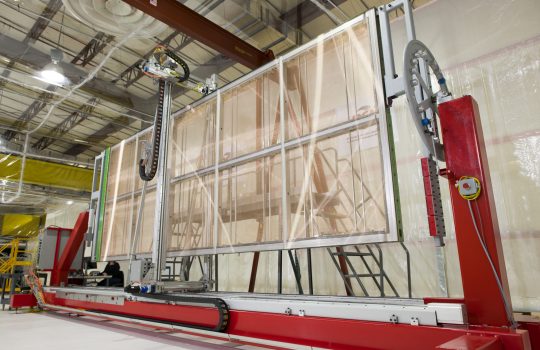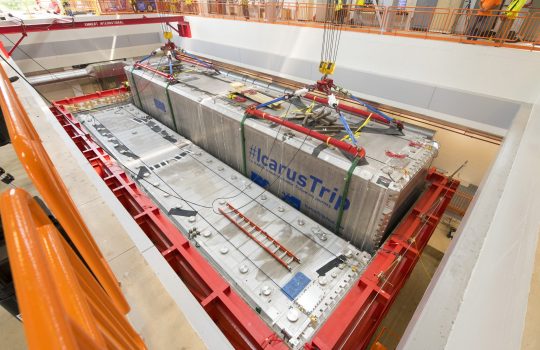Physical Sciences Laboratory part of $1.6 million grant to plan for neutrino detector
- Deep Underground Neutrino Experiment
- DUNE
- National Science Foundation
- neutrino
- University of Wisconsin - Madison
- Wisconsin
From University of Wisconsin–Madison, Sept. 5, 2018: The University of Wisconsin–Madison’s Physical Sciences Laboratory has been awarded by NSF a $1.6 million grant, with three other universities, to expand a technology for constructing specialized panels for the Deep Underground Neutrino Experiment.

